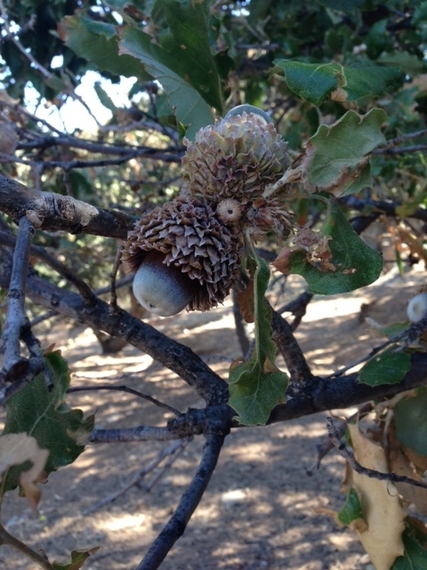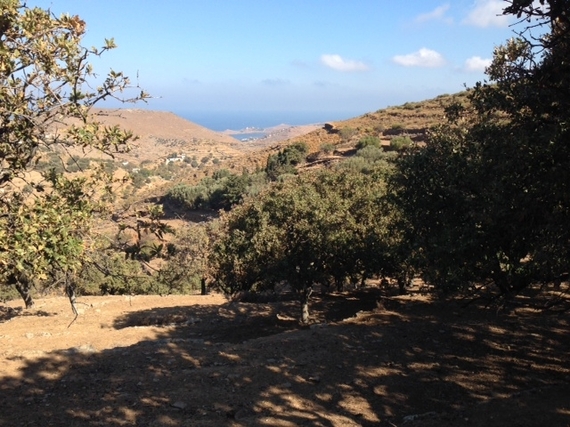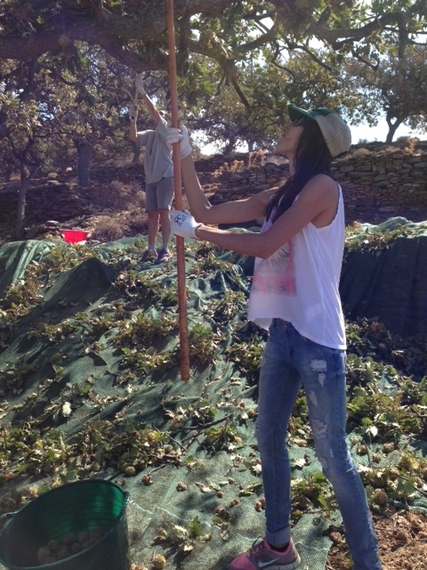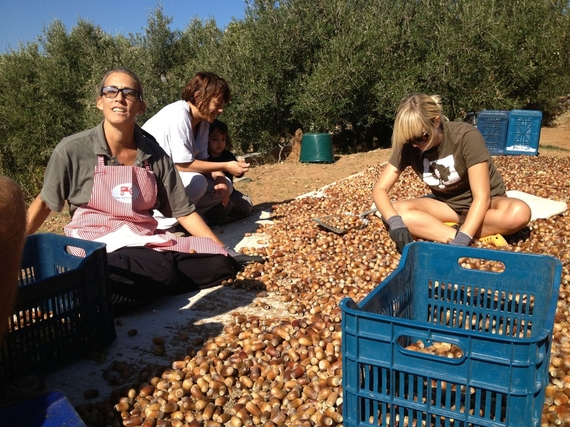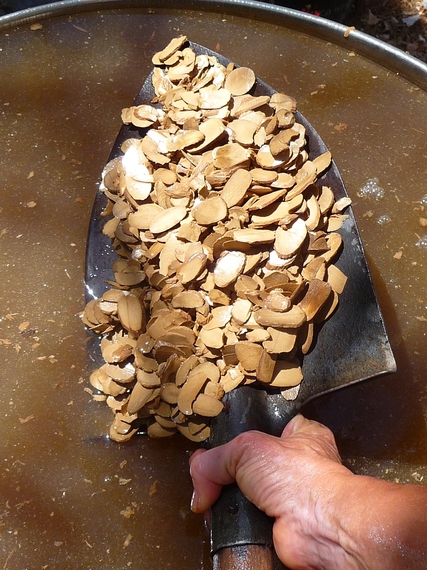Since ancient times, acorns and oak trees have been revered. In Greek culture the tree was considered to be sacred. According to Norse Mythology, Thor's magical hammer was crafted from an oak tree. But in modern day culture, for the most part, oaks and acorns have been forgotten.
I recently became interested in acorns accidentally. I happened to be visiting the Greek island of Kea, where acorns played an important role in the island's economy for hundreds of years. During the past 70 years the oak trees of Kea have been neglected and the acorns left to rot. This is all changing thanks to local resident Marcie Mayer and her acorn initiative. When I heard about the acorn initiative it immediately caught my interest. I had no idea that acorns could be used for anything beyond animal feed. When I met Marcie, she began to tell me about all the various uses of acorns; from leather tanning to producing nutrient dense gluten-free flour. Immediately I was in awe of the little nut.
Several years ago, when Marcie began the acorn initiative and the "I love acorns" website, she had little more to go on than a childhood love of acorns and a vision for bringing back part of the island's lost economy. Now Marcie's project is garnering international interest. Volunteers travel from as far as the U.S. and New Zealand to come to the small island and help with her project. Working with her husband Kostis, they put up volunteers for a minimum of a week. Volunteers stay at their farm and spend their days in the acorn groves of Kea gathering acorns for processing.
On my most recent visit, I spent a day with Marcie gathering acorns. Many of the island's acorn groves are located on hills overlooking the sea. It's not a bad spot to catch a breathtaking view of the island.
What I also discovered is that acorn gathering is also a great way to relieve stress. Typically you don't want the acorns that have already fallen on the ground. They could be overly ripe, or worse, infested with moth larvae. In order to gather the acorns that are still on the tree, a large fine mesh net is placed on the ground beneath the tree. The best way to get the acorns off the tree is to whack the branches of the tree with large wooden sticks. It reminded me of beating a piñata, the branches, leaves and acorns tumbling down like handfuls of candy.
It seemed like a rather harsh way to access the tree's acorns, but Marcie assured me that the process is actually good for the tree. It removes dead leaves and old branches. The "beaten" trees produce more acorns than the trees that discard the acorns of their own accord. My worry abated, I continued to whack at the branches and enjoy the cathartic effect it had on me. After a sufficient number of acorns were removed from the trees, we separated the acorns from the fallen leaves and branches, gathering the acorns into giant tubs.
The acorns are then taken back to the farm for processing. Thanks to Kickstarter Marcie has managed to purchase several pieces of manufacturing equipment, including an acorn huller. The huller has made the removal of the acorn's hard outer shell a much easier process! Once the outer shells are removed, the shelled acorns are then chopped up into pieces.
Due to their natural tannins the acorns are then placed into barrels of water that get changed twice daily for four days; or until the water remains clear and no longer tastes bitter. Finally the acorn mush is transferred to a solar dryer that dries out the acorn grain.
Marcie is working with local farmers to ensure that any leftover debris is fed to the local goats and pigs. The tannic acid from processing the acorns is being used as an ecologically-friendly way to tan leather. She is also planning to purchase an oil expeller machine to make acorn oil.
Her initiative seems to be spreading beyond the island, as both locals and foreigners are beginning to learn why they should love acorns too!
For more information about Marcie's acorn project visit www.iloveacorns.com
